
Michael Feinstein is one of the most in-demand crooners in the land. If people want sophistication, elegance and abundant love and knowledge of the Great American Songbook, they immediately turn to Feinstein.
For more than 20 years, Feinstein has reigned as the King of Cabaret, the Sultan of Standards and the Torch Bearer for Torch Songs.
A formidable interpreter of American classics from Gershwin to Berlin to Jimmy Webb (yes, he pays attention to modern songwriters as well), Feinstein is also an incredible storehouse of facts and lore. He has invested years in preserving the legacy of America’s greatest songwriters, and he recently created the Feinstein Foundation for the Preservation of American Popular Music to do just that.
But at the moment, all of his good works for American song are taking a back seat to his other career: showman.
On Saturday he finishes up the run of his annual holiday show at his New York nightclub, Feinstein’s at Loew’s Regency, and Sunday he flies to San Francisco, where he’ll have one rehearsal before he performs at 7 p.m. at Davies Symphony Hall with the San Francisco Symphony. He’ll repeat the show the following night, New Year’s Eve.
“This is how I like to experience the holidays,” Feinstein says. “I like to see the holidays through the eyes of audience members who all have different things they appreciate about this time of year. I sing the songs and look into the eyes of the people, see their reaction to the music. That’s much more fulfilling than sitting at home looking at a Christmas tree.”
Feinstein, 51, is officially bicoastal. He has an Upper East Side home in Manhattan, and in Los Angeles, he lives in what used to be the Russian consulate.
“Kruschev slept there,” Feinstein says.
In his late 20s, when he was starting to break out of piano bars and gain some notice, Feinstein played San Francisco’s Plush Room, which was then newly reopened.
 “I was having a whale of a time then,” Feinstein recalls. “It was a great, magical room for connecting with audiences. I have so many memories from there. Sammy Cahn came in one night. Milton Berle came in and ended up doing 20 minutes. Irene Manning of Yankee Doodle Dandy came in. Herb Caen wrote about me, `The kid’s got it,’ and it was like being anointed by the Pope. All the intelligentsia, the movers, shakes and money of San Francisco were there.”
“I was having a whale of a time then,” Feinstein recalls. “It was a great, magical room for connecting with audiences. I have so many memories from there. Sammy Cahn came in one night. Milton Berle came in and ended up doing 20 minutes. Irene Manning of Yankee Doodle Dandy came in. Herb Caen wrote about me, `The kid’s got it,’ and it was like being anointed by the Pope. All the intelligentsia, the movers, shakes and money of San Francisco were there.”
Feinstein remembers that era as having “a heightened sense of joy. It was before the world had changed, before the city had changed and before the worst of AIDS. It will never be that again.”
One New Year’s Eve, Feinstein recalls playing the Plush when Joan Fontaine (Rebecca), the actress, was squired into the room.
“She was an old-guard Hollywood actress, bowing and waving, and she was seated down front by the piano. She was drinking Champagne, and as the evening progressed, she got loopy and drunk, then kind of quieted into a stupor. Then she was bubbling like a tea kettle, mumbling under her breath. She started heckling me and told me, `Shut up! You can’t play. Get off the stage.’ I went from being thrilled to having Joan Fontaine in the audience to praying she would pass out.”
This New Year’s Eve promises to be a little less belligerent.
“Working with the symphony in one of my favorite cities is fantastic,” Feinstein says. “I’m a romantic, and New Year’s Eve should be romantic and celebratory. One of the songs we’ll be singing is `Here’s to Us’ and another is `The Folks Who Live on the Hill.'”
Keeping songs like those alive is of paramount importance to Feinstein, who has amassed an impressive collection of American song-related artifacts. Recently he bought what was left of a collection of production discs from the MGM musical days that include outtakes and demos.
 “There’s no money in preservation,” Feinstein says, which is why he created a foundation to spearhead a national effort. “If it’s not The Wizard of Oz and not deemed viable to turn a profit, nobody’s interested.”
“There’s no money in preservation,” Feinstein says, which is why he created a foundation to spearhead a national effort. “If it’s not The Wizard of Oz and not deemed viable to turn a profit, nobody’s interested.”
Though classic American song — what many call standards — is still alive and well, more attention needs to be paid, Feinstein says.
“New audiences are discovering this music all the time — they hear it at the movies and on TV,” he says. “It’s such adaptable music. It can survive Rod Stewart and other mediocre interpretations, which still get the music out there and please millions of people. People get something from this music like they do from Beethoven, Shakespeare or Picasso. There’s a unique value to it, not limited to a certain age group.”
Twenty years ago, Feinstein wondered if he’d have an audience in the future because his brand of music seemed to appeal so strongly with older people. And though older people continue to connect with the music, younger people are constantly discovering it.
“I still have an audience and will continue to have an audience,” Feinstein says. “This music will endure. There’s no doubt in my mind.”
Upcoming for Feinstein: He’s working with his pal Liza Minnelli on a CD of songs by Minnelli’s godmother, the great Kay Thompson; he’ll perform in London next month at Feinstein’s at the Shaw, a newly christened performance space; he’s producing a documentary on the late Kitty Carlisle Hart; and his musical, Perspectives, will likely have its debut in London’s West End.
Michael Feinstein and the San Francisco Symphony shows are at 7 p.m. Dec. 30 and 9 p.m. Dec. 31 at Davies Symphony Hall. Tickets are $20 to $175. Call 415-864-6000 or visit www.sfsymphony.org.
For more information on Feinstein, visit his Web site at www.michaelfeinstein.com.

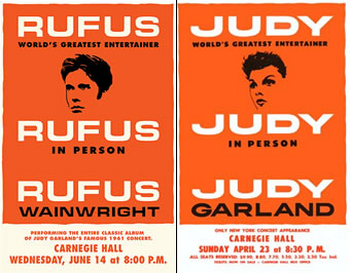
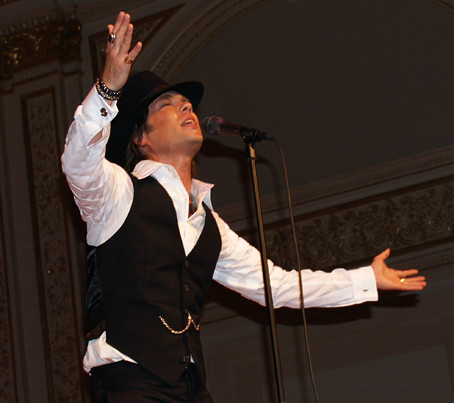
 Garland’s daughter, Lorna Luft, joins Wainwright for “After You’ve Gone,” though there’s no sign of that other daughter (the Minnelli one). On the DVD, we get five bonus songs: “Get Happy,” “Hello Bluebird” (with Luft again), “Someone to Watch Over Me” (with Martha and Kate), “Every Time We Say Goodbye” (with Kate) and a reprise of “San Francisco.”
Garland’s daughter, Lorna Luft, joins Wainwright for “After You’ve Gone,” though there’s no sign of that other daughter (the Minnelli one). On the DVD, we get five bonus songs: “Get Happy,” “Hello Bluebird” (with Luft again), “Someone to Watch Over Me” (with Martha and Kate), “Every Time We Say Goodbye” (with Kate) and a reprise of “San Francisco.”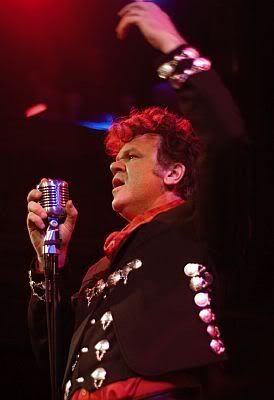

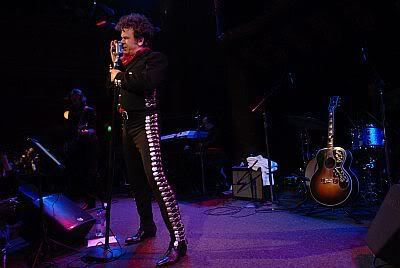

 Wilson makes it abundantly clear in concert that she would love to not sing any Supremes songs, but in the current incarnation of the show, she sings “My World Is Empty Without You.’’ (Last time around she sang three Supremes songs). The irony is that as much as she doesn’t want to sing the same songs she’s been doing for 40-plus years, she sings the hell out of this material. It would be great is she included more Motown material – she does include the Four Tops’ “I Believe in You and Me” – not necessarily Supremes songs, but great Motown songs from the ‘60s and ‘70s because she’s such an expert at performing them.
Wilson makes it abundantly clear in concert that she would love to not sing any Supremes songs, but in the current incarnation of the show, she sings “My World Is Empty Without You.’’ (Last time around she sang three Supremes songs). The irony is that as much as she doesn’t want to sing the same songs she’s been doing for 40-plus years, she sings the hell out of this material. It would be great is she included more Motown material – she does include the Four Tops’ “I Believe in You and Me” – not necessarily Supremes songs, but great Motown songs from the ‘60s and ‘70s because she’s such an expert at performing them.


 But Holliday has let her anger subside. One thing that helped was singing “And I Am Telling You…” on a BET awards show earlier this year with Jennifer Hudson — “the other Jennifer” — who won an Oscar for playing Effie, the part Holliday helped create.
But Holliday has let her anger subside. One thing that helped was singing “And I Am Telling You…” on a BET awards show earlier this year with Jennifer Hudson — “the other Jennifer” — who won an Oscar for playing Effie, the part Holliday helped create. “Whatever I’ve gone through, for whatever reason, I sing better now because of it,” Holliday says. “I would have liked to have not gone through a lot of those things, but I have to admit, my music and songs have more meaning for me now. I think I sing from a different place.”
“Whatever I’ve gone through, for whatever reason, I sing better now because of it,” Holliday says. “I would have liked to have not gone through a lot of those things, but I have to admit, my music and songs have more meaning for me now. I think I sing from a different place.”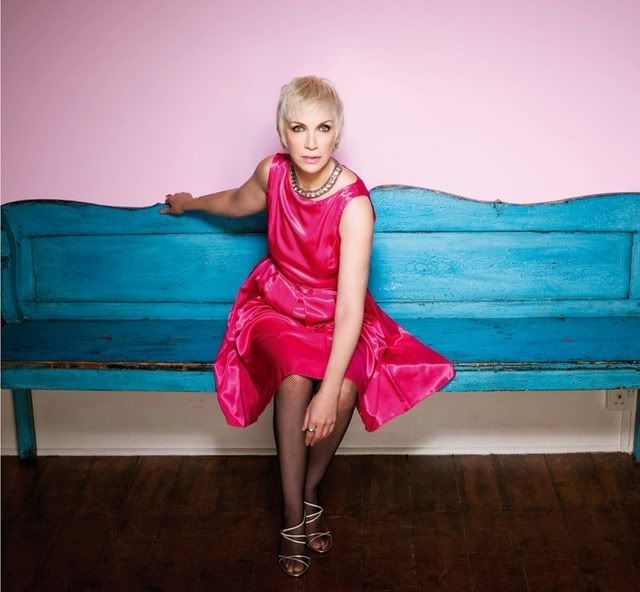
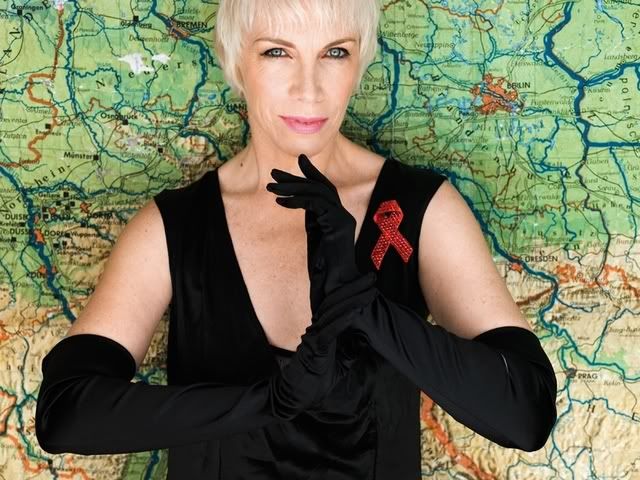

 Pulling primarily from 2005’s “Andrew Bird and the Mysterious Production of Eggs” and this year’s “Armchair Apocrypha,” Bird and his band turned what are, on the record, three- and four-minute gems into protracted loops of sound that push, pull and swirl into musical tornadoes.
Pulling primarily from 2005’s “Andrew Bird and the Mysterious Production of Eggs” and this year’s “Armchair Apocrypha,” Bird and his band turned what are, on the record, three- and four-minute gems into protracted loops of sound that push, pull and swirl into musical tornadoes.
 There won’t be anything from his well-received The Grapes of Wrath (libretto by Michael Korie), although that epic endeavor will arise again in Utah next month and in Pittsburgh and Houston in 2008 and 2009, respectively.
There won’t be anything from his well-received The Grapes of Wrath (libretto by Michael Korie), although that epic endeavor will arise again in Utah next month and in Pittsburgh and Houston in 2008 and 2009, respectively.
